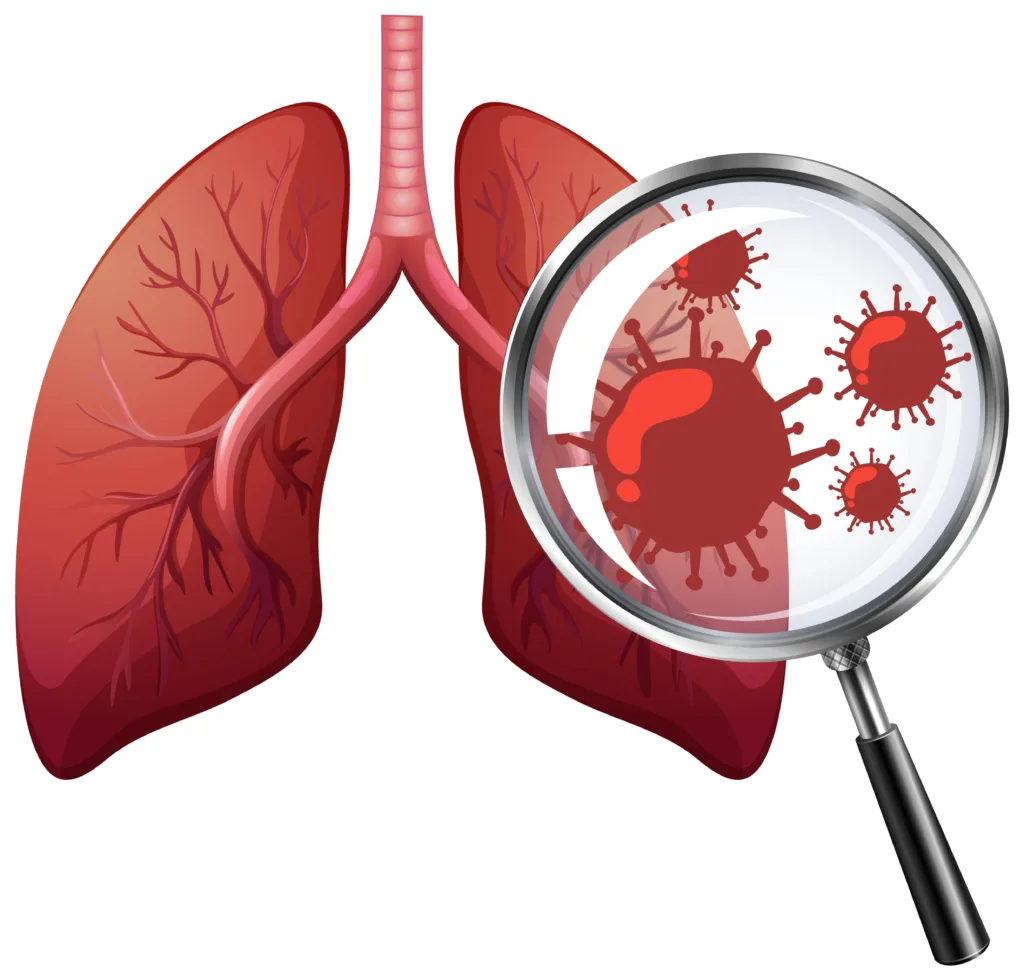What is lung cancer?
In simple language to understand the Lung cancer is cancer that forms in tissues of the lung, usually in the cells that line the air passages. It is the leading cause of cancer death in both men and women because it stops the flow of oxygen through blood to the whole body.
There are two main types of lung cancer: small cell lung cancer and non-small cell lung cancer. These two types grow differently and are treated differently. Non-small cell lung cancer is the more common type.
What are the symptoms of lung cancer?
Sometimes lung cancer does not cause any signs or symptoms. It may be found during a chest x-ray done for another condition.
If you do have symptoms, they may include:
- Chest pain or discomfort in the chest areas.
- A cough that doesn’t go away or gets worse over time
- Trouble breathing
- Wheezing
- Blood in sputum (mucus coughed up from the lungs)
- Hoarseness
- Loss of appetite
- Weight loss for no known reason
- Fatigue
- Trouble swallowing
- Swelling in the face / veins in the neck.

How is lung cancer diagnosed?
There are many tests and procedure to diagnosis the lung cancer are as follows:
Overall family history of the patient, A medical history, which includes asking about your various symptoms.
- A physical examination
- Chest x-ray or chest CT scan
- Lab tests, including tests of your blood and sputum
- A biopsy of the lung
If you do have lung cancer, you may have to go through other tests to get the findings about how far it has spread through the lungs, lymph nodes, and the rest of the body. This is called staging. Knowing the type and stage of lung cancer you have helps your provider decide what kind of treatment you need.
What are the treatments for lung cancer?
This is very unfortunate and I wasn’t mentioning this here, but on the other side, seeing its importance and criticality, I also want you to know about it that for most patients with lung cancer, current treatments do not cure the cancer.
Your treatment will depend on which type of lung cancer you have, how far it has spread, your overall health, and other factors. You may get more than one type of treatment.
The treatments for small cell lung cancer include:
- Chemotherapy
- Surgery
- Radiation therapy
- Immunotherapy
- Laser therapy, which uses a laser beam to kill cancer cells
- Endoscopic stent placement. An endoscope is a thin, tube-like instrument used to look at tissues inside the body. It may be used to put in a device called a stent. The stent helps to open an airway that has been blocked by abnormal tissue.
The treatments for non-small cell lung cancer are almost same as mentioned above:
- Chemotherapy
- Surgery
- Radiation therapy
- Targeted therapy, which uses drugs or other substances that attack specific cancer cells with less harm to normal cells
- Immunotherapy
- Laser therapy
- Photodynamic therapy (PDT), which uses a medicine and a certain type of laser light to kill cancer cells
- Cryosurgery, which uses an instrument to freeze and destroy abnormal tissue
- Electrocautery, a treatment that uses a probe or needle heated by an electric current to destroy abnormal tissue.
Prevention
Now the most important part which we must know about it that whether the lung cancer can be prevented or not?
The answer is yes by avoiding the following risk factors may help to prevent lung cancer:
- Quit smoking. If you don’t smoke, don’t start.
- Lower your exposure to hazardous substances at work.
- Try to keep yourself away from polluted areas or better to relocate in the city/country where pollution rate is very low.
- Always take a balanced diet, vitamin c rich foods.
- Lower your exposure to radon. Radon tests can show whether your home has high levels of radon. You can buy a test kit yourself or hire a professional to do the test.